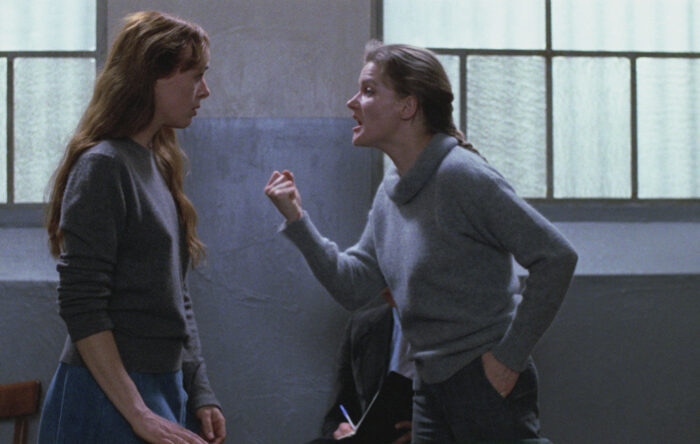Von Trotta’s powerful political drama brought her into the international public consciousness and solidified her position as a key director in the New German Cinema movement. The film tells the story of two pastor’s daughters who strive for a better world in vastly different ways: Juliane fights for women’s rights as the editor of a feminist magazine, while Marianne thinks thoughts don’t make a difference – she chooses violence and terrorism. The fictional film draws upon the restless German Autumn of 1977 and the real-life sisters Christiane and Gudrun Ensslin, of whom the latter belonged to the Baader-Meinhof terrorist group.
According to von Trotta, the film’s original title Die bleierne Zeit refers to the emotional atmosphere of the 1950’s. Marianne and Juliane, like the director herself, grew up ”under the leaden lid of silence”: war and the past were unspoken topics. The turning point for the siblings is a holocaust documentary seen as teenagers that reveals what their parents’ generation took part in. Future generations have to pay for the sins of the past. Also entering the picture is Marianne’s son Jan, who hates his mother despite having no recollection of her.
A theme that has come up in several of von Trotta’s films is siblinghood, a strong bond regardless of personal and political differences. Here she also draws attention to the question of motherhood and a woman’s right to choose whether she wants to be a mother or not.
Kaisu Isto
